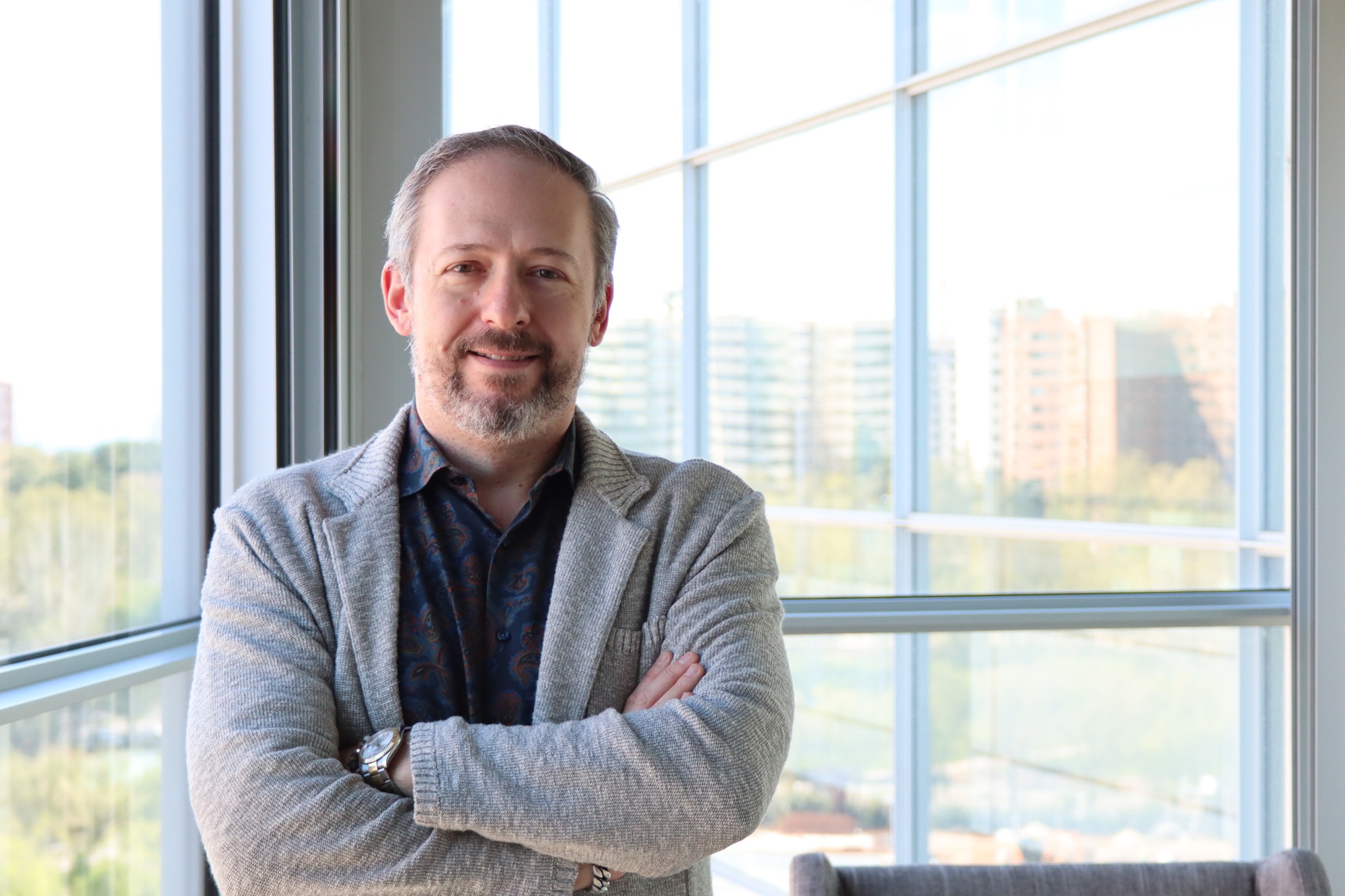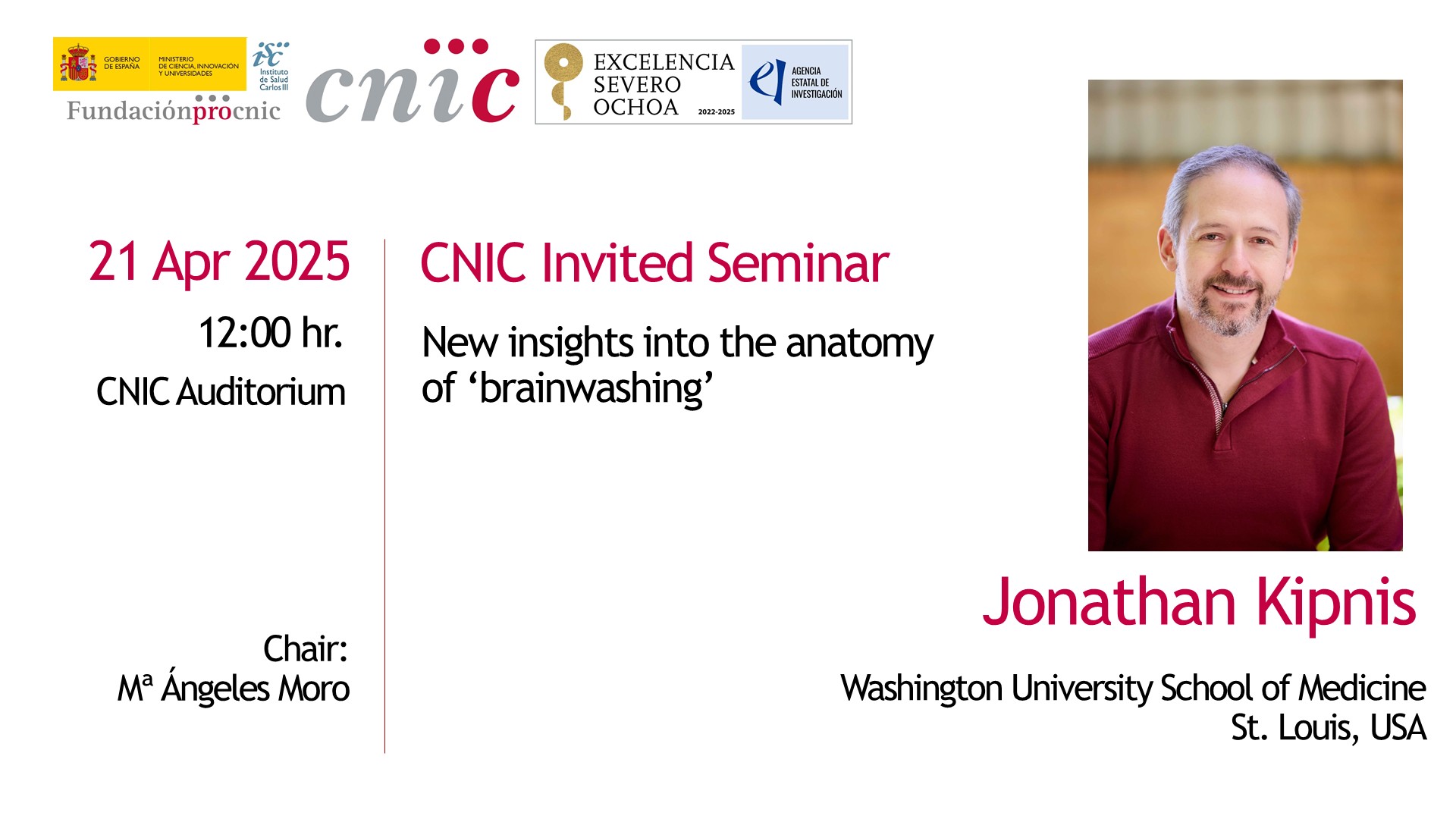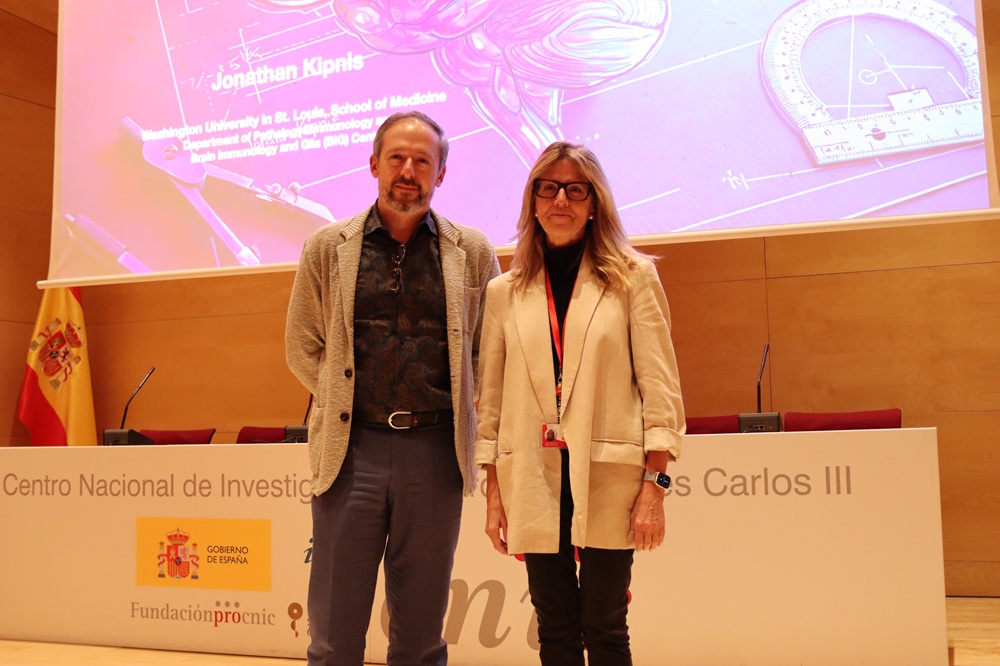Dr. Jonathan Kipnis: "Science isn’t just a luxury. It’s infrastructure for the future"
Dr. Jonathan Kipnis is a Principal Investigator and the Alan A. and Edith L. Wolff Distinguished Professor of Pathology and Immunology at Washington University
Dr. Jonathan Kipnis is a Principal Investigator and the Alan A. and Edith L. Wolff Distinguished Professor of Pathology and Immunology at Washington University, where he also serves as a Professor of Neurology, Neuroscience, and Neurosurgery, and Director of the Brain Immunology and Glia (BIG) Center. His research focuses on the interactions between the immune system and the central nervous system, aiming to understand the cellular and molecular mechanisms underlying neurodegenerative, neuropsychiatric, and mental disorders, as well as healthy aging. He has received NIH Director’s Pioneer Award in 2018 and is an elected member of the National Academy of Medicine (2022). Known for his groundbreaking contributions to immunology and neuroscience, his work has been recognized both nationally and internationally.
- What Is Brainwashing?
Every organ in the body produces metabolic waste. Think of it like your household plumbing: clean water comes in through pipes, and dirty water is flushed out through sewage systems. In our tissues, blood vessels deliver nutrients and oxygen, while lymphatic vessels remove waste.
The brain, being one of the most metabolically active organs, has an abundance of blood vessels to supply everything it needs. But how does it remove waste, especially given that there are no lymphatic vessels within the brain tissue itself?
To solve this, the brain has evolved a unique waste-clearance system. Our brains are surrounded by a fluid called cerebrospinal fluid (CSF). This fluid enters the brain alongside arteries, washes through the brain tissue, and exits along with veins, eventually draining into the dura mater—the protective outer layer of the brain. Recently, lymphatic vessels were discovered within the dura mater, and this is where the brain’s waste is ultimately drained. Though complex, this system appears to work effectively.
The concept of the brain needing to be “cleaned” isn’t entirely new—we’ve long suspected that waste removal in the brain is crucial. What’s new is the growing evidence showing how and when this "brainwashing" happens, and how essential it may be to prevent neurological diseases.
For example, recent research, including work from my lab and others, has shown that part of this cleansing activity takes place during deep sleep. During sleep, neurons fire in synchronized patterns, creating slow waves that seem to drive the flow of CSF through the brain. These waves help carry waste through and out of brain tissue—essentially washing the brain while we sleep.
Disrupting this system can have serious consequences. In studies with Alzheimer's models, for example, when the function of the brain’s lymphatic vessels is impaired, waste products like beta-amyloid accumulate more quickly. This supports the idea that poor waste clearance may play a direct role in the development of diseases like Alzheimer's, Parkinson’s, frontotemporal dementia (FTD), and other age-related neurological disorders—all of which are marked by inflammation, waste buildup, or both.
In short, ensuring your brain gets a proper “wash” each night—especially through quality deep sleep—may be more important than we ever imagined.
- How has the discovery of lymphatic vessels in the brain changed your understanding of neurological diseases?
Most of what we currently know comes from experimental studies, in my lab and many others. We’ve used various mouse models of neurological disorders like Alzheimer’s and Parkinson’s to explore this. In these models, we can interfere with the brain’s lymphatic vessels through genetic manipulation, surgery, or pharmacological methods.
When we impair the lymphatic function in these mice, their disease symptoms get significantly worse. That tells us that the proper functioning of these vessels is crucial for managing brain waste—and likely plays a role in the progression of neurodegenerative diseases.
Now, that’s in mice. The key question is: does this apply to humans? We do know now that humans also have lymphatic vessels in the brain, which was an important discovery in itself. The next step is to gather concrete evidence linking lymphatic dysfunction to human disease, particularly neurodegenerative conditions. That part is still emerging.
There’s some buzz around recent work in China. I’m absolutely not involved, but I came across it online. Apparently, some centers there are performing a procedure called lymphatic venous anastomosis (LVA) in Alzheimer’s patients. This involves surgically connecting lymphatic vessels to veins in the neck to improve waste clearance from the brain (or to unclog the clogged lymphatics).
They claim to have seen notable improvements in these patients. While there’s only a small publication on this so far, several clinicians and researchers on social media have reported witnessing the surgeries firsthand. If these results hold up in peer-reviewed research, it would be truly phenomenal.
- But isn’t that a pretty aggressive procedure?
Surprisingly, no. From what I understand, it’s a relatively simple surgery performed in the neck area. Clinicians have described it as straightforward—but I admit, when I first heard about it, I thought it sounded a bit wild. Still, if it works, it could open up entirely new treatment avenues.
- Do you think this could be a future cure for Alzheimer’s?
It's hard to say just yet. It might be too soon to talk about a "cure," but the possibility is intriguing. It actually reminds me of something that happened years ago, shortly after we discovered the brain’s lymphatic vessels. I was at the University of Virginia, and I showed our findings to John Jane Sr., a legendary neurosurgeon and department chair. He was already ill at the time, but still incredibly sharp. After seeing the data, he told me, “This could play a major role in Alzheimer’s. Maybe one day we’ll treat it with neurosurgery.”
And I thought it was a crazy idea at the time — this was about 10 years ago. But he was clearly far more visionary than I was.
- Imagine if Alzheimer’s disease could be cured with a simple procedure—do you think that’s possible?
I don't know if it can be cured, but I do believe that enhancing and maintaining the function of the brain’s lymphatic vessels could potentially delay the onset of Alzheimer’s. Curing an ongoing neurodegenerative disease is extremely difficult but delaying its onset—that’s a more achievable goal, in my opinion.
Maybe surgical approaches like lymphatic venous anastomosis (LVA) could help in the later stages of Alzheimer’s, but I don't believe surgery will be the universal solution. Personally, I think boosting lymphatic function with drugs or other non-invasive methods is more promising. In fact, I’ve co-founded a company (Rho Bio) focused on developing such treatments. I’m optimistic and hope to live long and dementia free
- Are there any other ways to help clean or maintain these brain vessels?
Yes, and the best one we know of right now is sleep—especially deep sleep. During deep sleep, our brain seems to have the highest clearance activity. But remember, waste removal in the brain is a two-step process.
First, the cerebrospinal fluid (CSF) has to move through the brain tissue to collect waste. Then, it has to be flushed out properly. Think of the brain like a house, you can bring clean water in, but if you don’t flush the dirty water out, you’re left with a swamp. It is important to produce new, clean CSF; removing the old, dirty CSF; ensuring good flow through the brain tissue, and of course, functional lymphatic drainage is critical.
This is why I don’t think one single drug will ever solve it all—it will require a multifaceted approach.
- You mentioned sleep. But as people age, they often sleep less and worse. And we’re living through a global insomnia crisis. Could that lead to a dementia epidemic in the near future??
That’s a fair concern, but I’m actually more optimistic than that. Here’s why: If the brain’s clearance system really works best at night—and that’s still up for debate—then we need to ask: Can we find a way to make this clearance process more efficient?
Think about it. Most biological systems aren’t perfect. Our immune system, for instance, needs vaccines to fight pathogens and therapies to help fight cancer. So, what if we could do the same for brain waste clearance? Imagine if we could develop a method to supercharge brain cleaning, so instead of needing 7–8 hours of sleep, you could get the same benefit in just 2 or 3 hours. Or even more radically—what if we could clean the brain during the day, eliminating the need for sleep altogether? That’s my dream. It sounds far-fetched now, but I love this idea.
- - All this still sounds a bit like science fiction to me.
Curing cancer sounded like science fiction just 20 years ago, too. Science moves fast, and what sounds far-fetched today could be tomorrow’s reality.
- Can the immune system help clear waste from the brain or support brain function??
Absolutely. The immune system is like the maintenance crew in a Formula One team. Even with the best driver (your brain), if the maintenance team isn’t functioning well, you’ll never win the race. Immune cells support blood vessel function, cerebrospinal fluid (CSF) production, waste removal and even lymphatic vessel performance-
- So, if the immune system is dysfunctional, the brain suffers too. On the other hand, a well-regulated immune system can detect problems and even help fix them. It's crucial.?
Yes, 100%. I totally agree. For a long time, neuroimmunology lived in the “dark ages” where the brain and immune system were seen as enemies. The old thinking was: “Keep them separate. Immune activity in the brain is always bad.” But that's no longer the case. Now we know that they constantly communicate, and when balanced properly, the immune system can help the brain heal and function better.
But of course, if it’s overactive or dysfunctional—like in autoimmune diseases—then yes, it can cause damage. That’s why understanding how to modulate immune activity in the brain is key.
- But animal models aren’t always accurate, right?
Exactly. That’s a major limitation. Animal models often represent just one aspect of a complex human disease. You can manipulate the immune system in animals and get certain results, but it doesn’t always translate to people.
Still, experiments in more straightforward systems—like spinal cord injury models—show that removing specific immune cells can actually worsen outcomes. That tells us: these cells are necessary. The immune system is part of the brain's support network.
- Inflammation is often seen as harmful to neurological diseases.
Yes, and that’s another outdated idea. Inflammation isn’t always bad. Take cancer, for example, it’s also associated with inflammation. But in that case, some types of inflammation help fight the disease. It’s all about context.
Sometimes inflammation is part of the body trying to fight or prevent disease, and other times it may contribute to it. We need to understand what role it’s playing in each specific case rather than labeling it as good or bad.
- How can knowledge from immunotherapy in cancer be used to treat neurodegenerative diseases like Alzheimer’s?
That’s a great question. We're still in early days, but some cancer immunotherapy concepts are being evaluated in neurology too. For example, PD-L1 inhibitors, commonly used in cancer, are now being evaluated in clinical trials for Alzheimer’s—there’s one happening in Israel right now.
It’s a different disease, so the approach and dosage are different, but the core idea is the same: boost or release the immune system's ability to help. In 10 or 20 years, we may have enough long-term data to see if people who received cancer immunotherapies are less likely to develop neurological diseases like Alzheimer's.
There’s already some interesting evidence from vaccines as well—certain vaccines have been linked to lower rates of Alzheimer’s, though we don’t fully understand why yet.
- You sound very optimistic. So, let’s dream big — if you had unlimited money and technology, what kind of experiment or project would you pursue?
That's a fun thought. If I had unlimited money and all the tools I could imagine, I think I’d still stay in my current area—because I truly believe we’re on to something important. The direction is solid. But of course, with unlimited resources, we could move faster and get bigger. We’ve already learned a lot from mouse models about brain clearance and how to manipulate it. The next step would be moving into larger animals, like pigs, sheep or even monkeys, before making the leap to clinical trials in humans. That’s where the cost explodes—and that's where unlimited money would really help. It could fast-track this translational research.
I’d also want to do multi-modal approaches—targeting 2 or 3 key pathways at once: improving CSF flow, supporting lymphatic function, and boosting the immune component. Then I’d evaluate the impact across diseases like Alzheimer’s, Parkinson’s, and others.
Also, we’re very interested in cellular therapies for neurological diseases, inspired by what’s been done in cancer immunotherapy. With more funding, we could really push forward designing smart, targeted cellular strategies and again evaluating them in larger animal models before clinical translation.
But I’ll say this—unlimited money can dull your creativity. It’s healthy to have limits. I believe funding should be sufficient, but not infinite. That challenge forces innovation.
- And speaking of funding—how’s the situation right now in the U.S.?
It’s still not as bad as it may seem from the outside. The NIH budget as a whole hasn't changed yet, which is a good thing, and I think it continues. However, people working on developing vaccines for future pandemics — an extremely important area of research — are unfortunately being targeted. This is both terrible and devastating.
But in my own field, neuroimmunology, we haven’t seen cuts so far. Thank God. And frankly, with how rapidly our politicians are aging, they probably realize they’ll need these brain-focused therapies sooner rather than later!
All jokes aside, American science is going strong. Yes, we’re going through a politically volatile time. It feels like a volcano right now, but I hope it’ll settle. And the US will continue to lead the world’s science.
As scientists, we should focus on our science and let the work speak for itself.
Science must stay apolitical. These days, everyone wants to be a politician, even scientists. They're doing interviews, talking policy—but I’m not sure that helps. I believe we contribute best by doing the work, showing the world that what we produce is vital, meaningful, and has immediate health benefits.
.
- - So, do you believe that science is essential to keeping America strong?
Absolutely. You can’t make or keep America great without great science. That’s what built this country’s leadership in the modern world—innovation, research, and technology.
I half-joke sometimes: we should have a slogan like "Make American Science Great Again"—because without it, the rest eventually crumbles. Unfortunately, many politicians don’t seem to get that. Science isn’t just a luxury. It’s infrastructure for the future.
And I’ll say this, as scientists, they have some responsibility too. Somewhere along the way, we lost a bit of the public’s trust. Not because science isn’t working—but because a few bad players made headlines. And the media magnifies every scandal.
Look, in farming, there are cheaters. In law, in business—everywhere. But that doesn't mean the entire profession is corrupt. Most scientists are just decent, hardworking people. We’re motivated by curiosity. But that curiosity leads to real solutions—new medicines, diagnostics, therapies. And unfortunately, I think we’ve done a poor job communicating that value to the public.
- The pandemic should have shown the world how vital science is, isn’t it?
You’d think so, right? COVID-19 should’ve been the moment where people said: “Thank God for science.” Scientists came together from all over the world, many working non-stop to create a vaccine in under a year. That’s unprecedented. It’s incredible.
But oddly, it became divisive. Especially with vaccines, which should be seen as one of the greatest human achievements.
My daughter—she’s in college—just made a TikTok video explaining that vaccines are lifesaving and don’t cause autism. She broke it down so simply, with facts, and I thought: this is what we need. Clear, relatable, accessible science communication.
Still, the problem isn’t just misinformation, it’s also the perception of greed. Pharmaceutical companies made huge profits, and for some people, it seemed like money mattered more than lives. That damages public perception.
But again—this is why we need science. Not panic. Not politics. Just real, honest research to explore the long-term effects. We don’t need fear—we need data. We need to regain public’s trust to have their support as we are pushing the frontiers of what’s possible.












